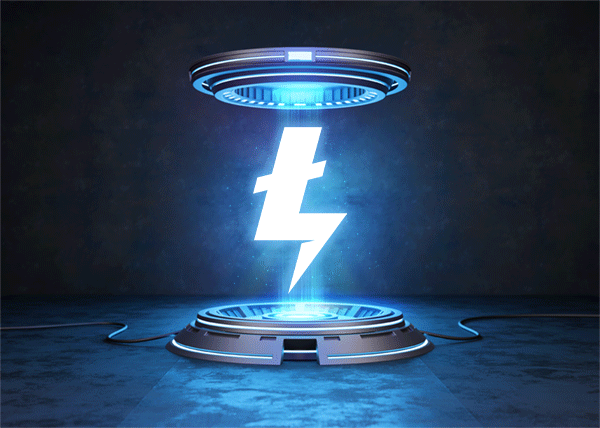Litecoin is a cryptocurrency created to send payments quickly, safely and affordably by taking advantage of blockchain technology.
The cryptocurrency was established on the Bitcoin (BTC) protocol but varies in terms of aspects such as the hashing algorithm utilized, hard cap, and block transaction times. With a Litecoin block time of only 2.5 minutes and Transactions fees that are very low, it is ideal for micro-transactions and point-of-sale payments.
Litecoin entered the market on Oct. 7, 2011 through an open-source client published on GitHub. The Litecoin Network officially launched five days later on Oct. 13 . In the years since, Litecoin has become one of the most popular cryptocurrencies and is consistently ranked within the top ten largest coins by total market capitalization.
Charlie Lee, a previous Google employee, designed Litecoin to be “a lite version of Bitcoin.” The cryptocurrency has numerous of the same attributes as Bitcoin but is not as heavy.
As we briefly discussed, Litecoin was created by Charlie Lee.Charlie is an early adopter of cryptocurrency and he has a great reputation among other crypto enthusiasts.
Charlie Lee, more popularly known as “Chocobo,” was an early Bitcoin miner and computer scientist. Before his involvement in the cryptocurrency world, Charlie worked as a software engineer for Google. Furthermore, he held the position of director of engineering at Coinbase from 2015 to 2017 before leaving for other projects.
Charlie Lee is a well-known advocate for cryptocurrencies and the managing director of the Litecoin Foundation—a non-profit organization supporting the Litecoin Core Development team.
The Litecoin Foundation’s Board of Directors includes Lee, Xinxi Wang, Alan Austin and Zing Yang. All four individuals have significant accomplishments.
Litecoin is the second most popular cryptocurrency, simple in design and clear in benefits.
LTC, or Litecoin, is a cryptocurrency that as of January 2021, is accepted in more than 2,000 stores and by many merchants worldwide.
The main benefit of Litecoin is its speed and affordability. Transactions are typically confirmed in just minutes, and transaction fees are very low. This makes it a more attractive option than Bitcoin in developing countries, where transaction fees may be the deciding factor on which cryptocurrency to support.
The MimbleWimble (MW) testnet was released in late 2020 in order to try out Mimblewimble-based confidential transactions on Litecoin. If this feature goes live on the mainnet, it will improve privacy and fungibility for all users.
The Litecoin Foundation announced the highly anticipated Mimblewimble Extension Block (MWEB) upgrade as part of the Litecoin Core 0.21.2 release candidate on Jan. 31, 2022. According to sources, MWEB is “set to be the largest upgrade to the Litecoin network ever, promising to provide fungibility for all, while improving Litecoin’s scalability.” As an opt-in feature, this allows users to choose whether or not they want privacy-enhancing parameters like Taproot activated – making Litecoin one of the most private and cash-like cryptocurrencies available today
